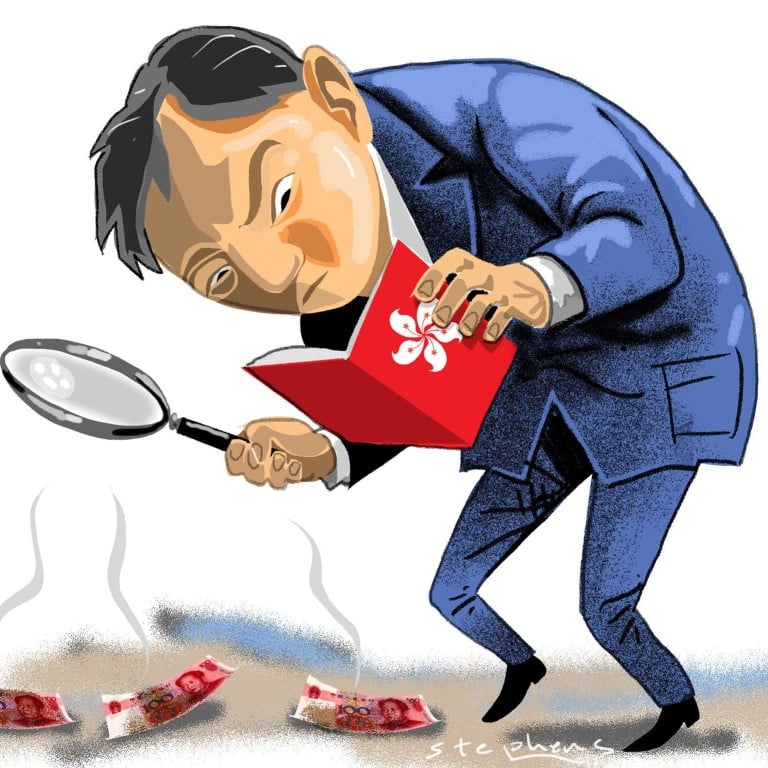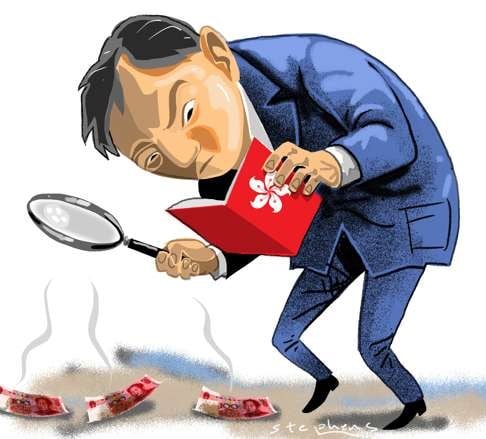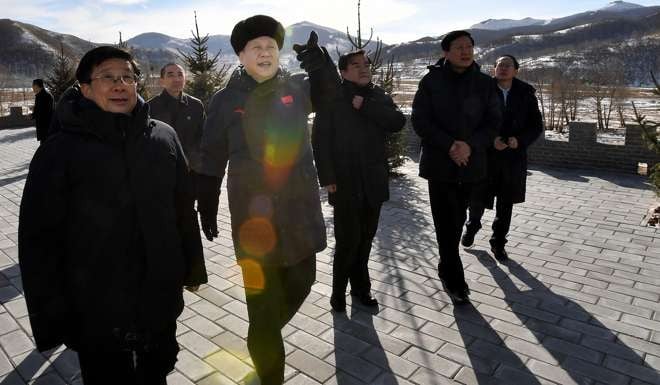
Can China be the next anti-corruption success story, after Hong Kong and Singapore?
Tony Kwok says Beijing’s plan to set up a super agency to combat the scourge is a big step in the right direction, and shows it is adopting best practices from elsewhere

So, what does such a model entail and how does mainland China, which is now trying hard to combat corruption, fit in with this model?
Why reform of China’s anti-corruption agency is falling short
As early as the 1980s, China tried to learn from the Hong Kong experience. At that time, the chief prosecutor of the People’s Procuratorate of Guangdong paid a visit to the Independent Commission Against Corruption, the first official delegation from the mainland. He was very impressed with the ICAC. Upon his return to Guangzhou, he set up the first anti-corruption bureau within the prosecutors’ office. Since then, many provincial prosecutors have followed suit, which eventually led to the establishment of an anti-corruption bureau in the Supreme People’s Procuratorate, which became the de facto national anti-corruption unit.
This bureau, together with the Communist Party’s Central Commission for Discipline Inspection, adopted Hong Kong’s three-pronged anti-corruption strategy – enforcement, prevention and education. However, it would appear that the emphasis was on prevention and education, rather than enforcement. There appears to have been a lack of strong and effective enforcement and determination to punish the corrupt. Over the years, corruption became a low-risk crime. It flourished and became organised, posing a serious threat to governance.

Why Xi Jinping’s bid to put ‘power in a cage’ must go to the very top
This has been partly rectified since the 18th party congress in 2012 when Xi Jinping (習近平) took the helm. Since then, the president and Wang Qishan (王岐山), secretary of the discipline inspection commission, have stepped up efforts to bring the corrupt to justice. In the past four years, hundreds of officials, including many at ministerial level, have been prosecuted and convicted, sending a clear message that corruption will not be tolerated.
Over the years, corruption became a low-risk crime. It flourished and became organised
Notably, the crackdown specifically targeted corruption syndicates: those in Shanxi ( 山西 ), Sichuan ( 四川 ), the energy sector, the military, and so on. This is in line with the ICAC’s success in rooting out syndicates in the first three years of its operation. Unless these powerful syndicates are smashed, there is no chance of being able to introduce effective corruption-prevention systems.
One factor in the ICAC’s success is its emphasis on the integrity of its staff, as a single case of internal corruption would gravely harm its image and undermine public support. Hence, an internal monitoring unit was set up right at the beginning, in 1974. It is interesting to note that China’s party watchdog has now followed the Hong Kong example and established internal investigation units in all its branches. Recently, the commission revealed it had investigated its own officials for corruption, even documenting its efforts in a three-part TV series, To Forge Iron, The Metal Itself Must be Strong.
Watch: China’s graft-buster investigates its own officers
No money, no talk: TV series reveals how China’s corrupt graft-busters traded secrets for cash
Finally, a critical factor in the ICAC’s success is its independence, which is guaranteed in the Basic Law. Hence, it is a real breakthrough for the National People’s Congress Standing Committee to announce recently the establishment of an independent anti-corruption agency – a national supervisory commission answerable to the NPC, with its head appointed by the NPC.
The new commission will bring under one roof the various anti-corruption units in the prosecutorial and government departments, such as the Ministry of Supervision and the National Bureau of Corruption Prevention. The agency will work with the party watchdog, and will have the power to investigate all public officials, including party members, civil servants, judges and prosecutors, and state-owned organisations.
This single, independent body will be similar to the ICAC, and will be a great improvement on the current system, with its fragmented and ill-coordinated anti-corruption efforts. By working with the Central Commission for Discipline Inspection, it can also help address the criticism that the party organ lacks the legal authority to investigate corruption. This will strengthen China’s rule of law and enhance its image.
Independence for China’s new super graft-buster ‘impossible’, Communist Party watchdog officials say
One key change is the separation of the investigation unit and the prosecution authority – in the proposed system, the new agency will be responsible for investigation while the Supreme People’s Procuratorate will be the prosecution authority. Again, this is similar to the practice in Hong Kong, where the ICAC acts as the investigation agency and the Department of Justice as the prosecution authority. This is regarded as a key aspect of sound checks and balances.
China should champion its anti-corruption success stories to fight the cynicism
Drawing on Hong Kong’s experience, I have a few more thoughts for the new commission:
● From the start, the ICAC set up a 24-hour reporting centre, in view of the importance of public reporting. We also encouraged Hongkongers to report corruption, and succeeded in getting more than 70 per cent of the people who came forward to do so in their own name. As yet on the mainland, there are no such reporting facilities and the majority of the reports received are still anonymous.
● Mainland China should update its antiquated concept of human rights, and consider allowing law enforcement agencies to use proactive investigation methods such as undercover and entrapment operations.
● Corruption these days is often cross-jurisdictional, hence there is a need for the new commission to establish extradition, asset recovery and mutual legal assistance agreements with most Western countries, and Hong Kong.
● I have often been invited to give talks at mainland universities, and observed that in most universities, anti-corruption education is not included in the curriculum. This is unsatisfactory as the subsequent graduates, whether working in government or business, need to have a clear appreciation of how to avoid corruption and conflicts of interest.
Having said that, China is clearly adapting the best practices from Hong Kong and elsewhere to combat corruption. Indeed, according to Xinhua, 93 per cent of the people in China are satisfied with the government’s anti-corruption efforts. With such public support and a strong political will, I am confident that China will emerge as the third successful anti-corruption model, after Hong Kong and Singapore.
Tony Kwok is a former deputy commissioner of the ICAC and currently adjunct professor at HKU SPACE, and an international anti-corruption consultant

